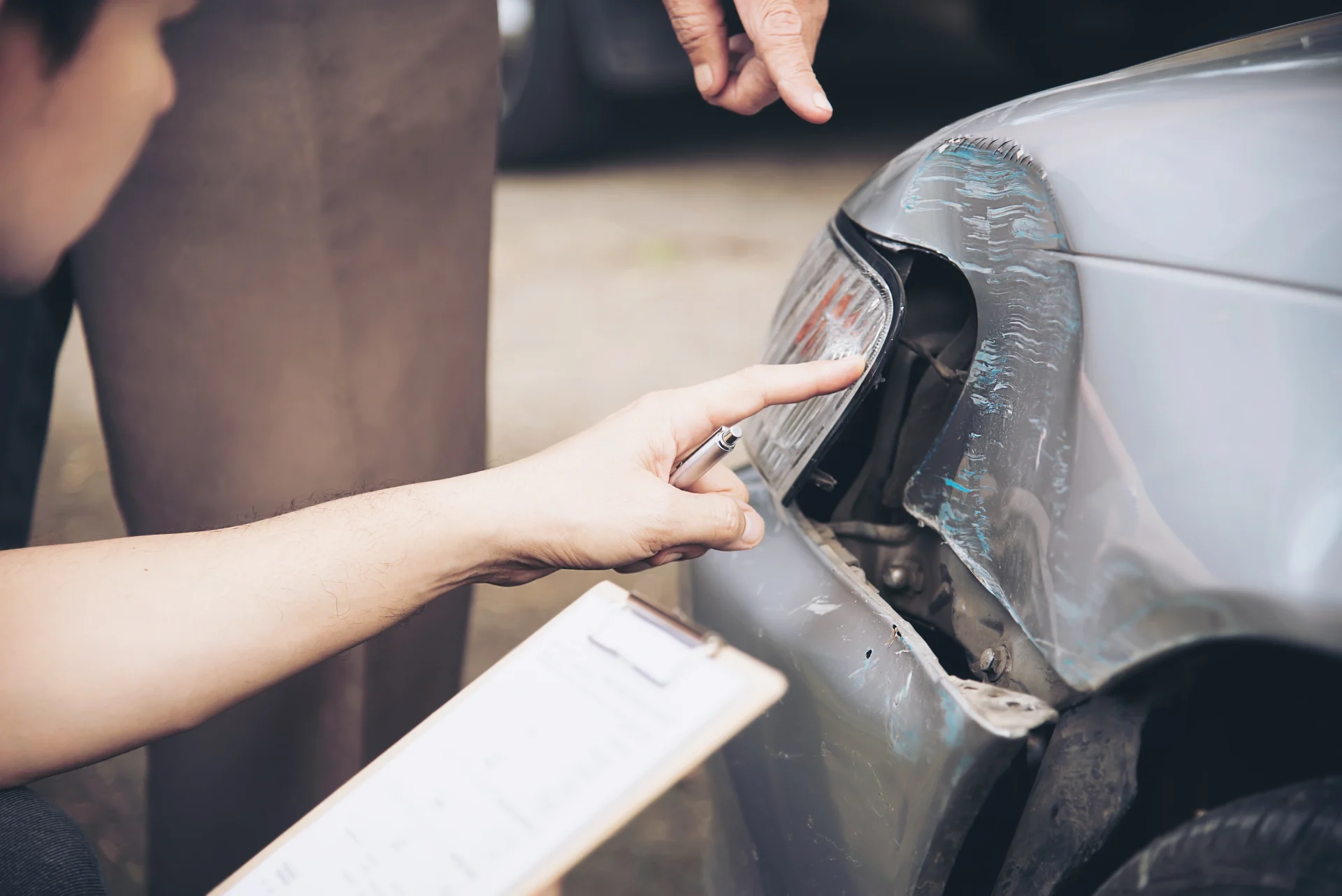How Does a Car Accident Lawsuit Work?

Wondering how does a car accident lawsuit work? This guide outlines every stage from filing to trial, helping you understand your legal rights and next steps clearly.
Step-by-Step Guide: How Does a Car Accident Lawsuit Work
If you have found yourself dealing with the aftermath of a car crash, you might be asking: “How does a car accident lawsuit work?” It can feel complicated at first, but once you understand the key steps, you will feel more confident navigating the legal system. Below, we explore the basic phases of a car accident lawsuit, possible timelines, and how to work effectively with a legal professional. Our goal is to give you a balanced, friendly, and data-aware guide so you can make well-informed decisions if you ever need to file a personal injury claim.
How does a car accident lawsuit work? an overview
A car accident lawsuit aims to determine fault and secure compensation for damages you have sustained. These damages can include medical bills, lost wages, and pain and suffering. Most people bring a lawsuit when an insurance claim fails or when the offered settlement seems too low.
Statistics from legal surveys suggest that a large share of personal injury cases, including car accident claims and car accident lawsuits, are settled out of court. However, if settlement attempts fail, the lawsuit moves forward to trial.
Below, we break down the process step by step so you can know what to expect.
Key steps in a car accident lawsuit
Understanding the sequence of a car accident claim helps you stay organized and prepared. Although every case is unique, most car accident lawsuits include these common stages:
- Filing the complaint
- Serving the defendant
- Discovery
- Negotiation and possible settlement
- Trial (if no settlement is reached)
- Post-trial motions or appeals (if needed)
We will explore each step in detail to give you a balanced look at how an auto accident lawsuit might unfold.
1. Filing the complaint
- The first formal step is filing a “complaint” with the court.
- The complaint details accident facts, your claims, and damages you seek.
- Filing the complaint starts the lawsuit; a copy goes to the defendant.
2. Serving the defendant
- After filing, the defendant must receive formal notification called the service process.
- Service rules differ by state; usually, a neutral person delivers documents.
- Once served, the defendant has limited days to respond or dispute claims.
3. Discovery
- Discovery lets both sides exchange documents, questions, and witness interviews under oath.
- Car accident discovery may include medical records, police reports, photos, and experts.
- Discovery often consumes half the lawsuit timeline, gathering evidence for both sides.
4. Negotiation and possible settlement
- Once discovery starts, settlement negotiations begin, often intensifying as cases clarify.
- Many cases end with settlement; the defendant pays, and the lawsuit is dropped.
- Ensure settlement covers expenses; negotiate further or proceed to trial if insufficient.
- IIf curious, review options like car accident settlement and see car accident compensation.
5. Trial (if no settlement is reached)
- When the parties cannot reach a fair settlement, the case may go to trial.
- A car accident trial involves evidence, witnesses, and arguments on liability.
- Judge or jury decides liability and determines awarded compensation after hearing.
6. Post-trial motions or appeals (if needed)
- After a verdict, either side can file appeals challenging legal errors.
- Appeals can extend your lawsuit timeline by months or years, although many cases do not progress to this stage.
Working with a car accident lawyer
Deciding to hire an attorney for your auto accident lawsuit is crucial, especially for serious injuries or disputed fault cases.
- A car accident lawyers, in many instances, offers a free initial consultation. If you would like to learn more about that, check out our article on do car accident lawyers offer free consultations?.
- Legal fees for these types of cases often follow a contingency arrangement, meaning you pay no upfront fee and only settle the lawyer’s fees if you win or settle. For more info on costs, you can see car accident lawyer fees.
How a lawyer supports your case
- Investigating the crash
- Lawyers work with investigators, collect witness statements, and review relevant accident footage.
- They use this information to prove fault and justify your compensation.
- Calculating damages
- Attorneys calculate past, future medical expenses, lost wages, emotional distress.
- They collaborate with medical and financial experts to assess injury impact.
- Navigating legal strategy
- A lawyer can help you decide whether to settle or push your case to trial. If you are curious about the possible timeline, you might look at how long does a car accident lawsuit take?.
- They mediate with insurers, presenting evidence to strengthen and support your claim.
- Representation during trial
- If settlements fail, your lawyer represents you, presenting arguments effectively in court.
A lawyer is your ally, guiding legal rules, negotiations, often leading to more favorable settlements.
Potential challenges along the way
While the process is generally predictable, you can face roadblocks:
- Delays in collecting documentation
- Uncooperative insurance companies
- Disputes over liability or damages
- Scheduling conflicts with courts and attorneys
- Emotional stress, especially when reliving details of the accident
Preparing for hurdles, staying organized, and communicating clearly keeps your case on track.
Settlement versus trial
Deciding to settle or go to trial depends on case strength and fairness.
- If you want to explore compensation amounts, you can read more in how much is a car accident lawsuit worth?.
- In case you lose at trial, it may help to understand what happens if you lose a car accident lawsuit?.
Possible outcomes and next steps
You may secure an out-of-court settlement or a car accident trial verdict covering your damages.
However, it is vital to approach this with realistic expectations:
- The timeline can range from a few months to multiple years.
- No lawsuit guarantees you will receive the exact sum you ask for.
- Even a lawsuit may not recover all losses if insurance is limited.
Consider immediate needs first, such as medical bills or home assistance. Learn more about are car accident settlements taxable.
How Does a Car Accident Lawsuit Work and Why It Matters
When you understand how does a car accident lawsuit work, you empower yourself. You’ll be more equipped to respond to offers, navigate disputes, and push forward with confidence. Legal action isn’t always easy but it can help you secure the compensation you rightfully deserve.
If you’re considering legal steps, talk with a professional, gather strong documentation, and keep your expectations balanced. With the right support and preparation, you can protect your rights and pursue the best possible outcome.
Ready to Take the Next Step? Let Empower Injury Law Help
When you’re unsure how to proceed, Empower Injury Law is ready to fight for your full compensation medical bills, pain and suffering, lost wages, and more.
Get your free consultation today. Your future deserves justice.
Frequently Asked Questions
1. How Long Does a Car Accident Lawsuit Take?
A car accident lawsuit can take anywhere from a few months to several years, depending on injury severity, fault disputes, insurance issues, and court delays.
2. What Happens If You Lose a Car Accident Lawsuit?
If you lose a car accident lawsuit, you may be responsible for paying court costs and possibly the other party’s damages.
3. How to File a Car Accident Lawsuit?
To file a car accident lawsuit, you must submit a complaint in court within the legal time limit set by your state.
4. How Much Is a Car Accident Lawsuit Worth?
The value of a car accident lawsuit depends on factors like medical expenses, lost wages, property damage, and pain and suffering.
5. Will my case go to trial?
Most cases settle, but disputes may push your lawsuit to trial.
6. What if the insurance settlement is too low?
You can negotiate, file a lawsuit, or pursue trial, mediation, arbitration.
7. What happens if I lose the lawsuit?
Depending on your agreement, losing might not require paying attorney fees.
Key takeaway
- Gather as much evidence as possible early on, including medical bills, photos, and police reports.
- Understand that each phase, from filing to trial, has its own timelines and requirements.
- You can often negotiate a settlement at various points in the process, which might save time and stress.
- Working with a lawyer helps you calculate damages accurately and navigate legal pitfalls.
